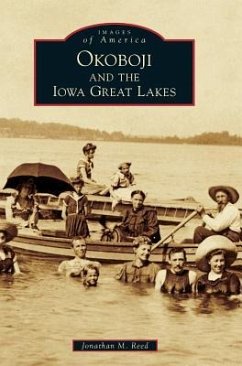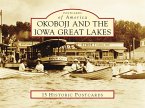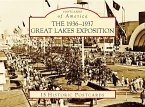Generation after generation, families of vacationers have returned to northwestern Iowa's Okoboji and the Iowa Great Lakes for summertime rest and recreation. From the earliest pioneer days to the Spirit Lake Massacre to the first rustic outdoorsmen's accommodations, this deep glacial lake and its sister prairie lakes have been embraced by visitors for more than 150 years. Slow growing until rail service in 1882, the area saw investment in the form of the Orleans, the grandest hotel west of the Mississippi, which was demolished a scant 15 years later. By then, though, word had gotten out, and Lake Okoboji's wooded bluffs and sandy beaches became places of quiet repose for vacationers. Resorts of all sizes drew the wealthy and modest alike. Among the area's attractions were Arnolds Park Amusement Park; the Roof Garden; the Casino, Central, and Inn ballrooms; thrilling boat rides; skating; and summertime "bathing" in the revitalizing waters. Now largely given over to private residences of all sizes, the many marinas and public areas still draw summertime visitors intent on forging their own indelible memories.
Hinweis: Dieser Artikel kann nur an eine deutsche Lieferadresse ausgeliefert werden.
Hinweis: Dieser Artikel kann nur an eine deutsche Lieferadresse ausgeliefert werden.








